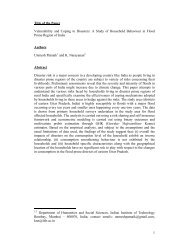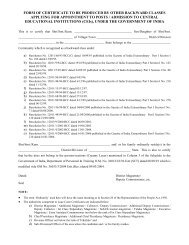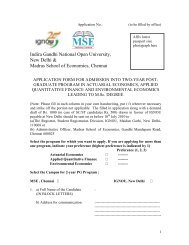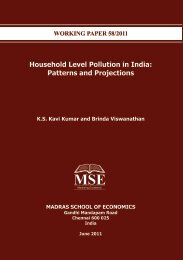Accounting for India's Forest Wealth - Madras School of Economics
Accounting for India's Forest Wealth - Madras School of Economics
Accounting for India's Forest Wealth - Madras School of Economics
- No tags were found...
You also want an ePaper? Increase the reach of your titles
YUMPU automatically turns print PDFs into web optimized ePapers that Google loves.
happened with the relatively high oil prices over 2006-08) as well as intolow-carbon energy sources. Government taxation, in contrast, can targetcarbon emissions through a carbon tax, which would penalize highcarbonoil substitutes and be far more effective in promoting newinvestment into low-carbon energy sources.There are important lessons <strong>for</strong> India from the internationalexperience. First, the tax on energy should be allowed to continue tocascade and polluting goods and services should be differentially taxed athigher rate. Further, India should develop capacity in environmentindustries where there is the potential <strong>of</strong> considerable growth <strong>of</strong> demandrather than concentrating on polluting industries where already there isconsiderable excess capacity globally.6. INTEGRATING ENVIRONMENTAL TAXES INTO GST DESIGNThree Forms <strong>of</strong> Environmental Taxes in GST FrameworkLooking at the three versions <strong>of</strong> the GST, it appears that three routes <strong>for</strong>the environmental taxes can be part <strong>of</strong> the overall scheme <strong>of</strong> indirecttaxes in India the core <strong>of</strong> which can be the GST. These are: nonrebatableexcise duties by the centre and the states on selected pollutingproducts, environmental cesses where a link can be established betweenthe revenue from the cess and the environmental promoting activity, anduser charges. In addition, at the local government level environmentaltaxes like the congestion charges can be levied. The most important <strong>of</strong>these will be the non-rebatable excises and the selection <strong>of</strong> goods thatcan be placed under these. The 13 th Finance Commission has madereference to all <strong>of</strong> these but the coverage <strong>of</strong> goods <strong>for</strong> non-rebatableexcises is limited to petroleum products, alcoholic beverages, andtobacco. The mention regarding cesses is about cesses <strong>for</strong> emergencyconditions. In other places, the Commission says that all cesses should32


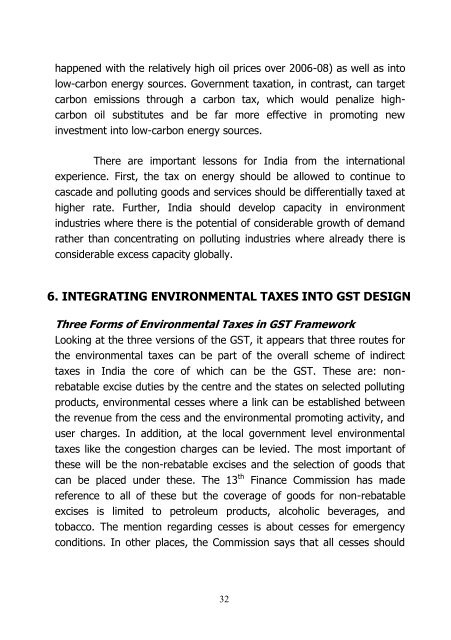
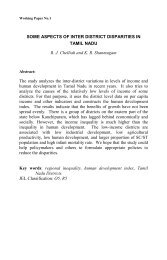
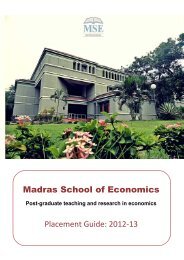
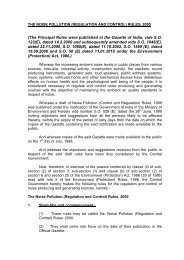
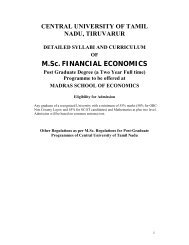
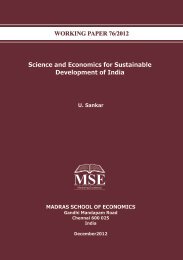
![Curriculum Vitae [pdf] - Madras School of Economics](https://img.yumpu.com/49878970/1/190x245/curriculum-vitae-pdf-madras-school-of-economics.jpg?quality=85)
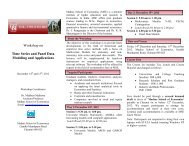
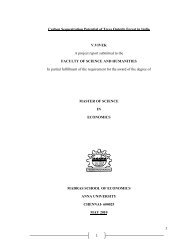
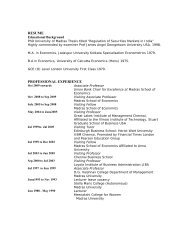
![Curriculum Vitae [pdf] - Madras School of Economics](https://img.yumpu.com/48715201/1/184x260/curriculum-vitae-pdf-madras-school-of-economics.jpg?quality=85)
